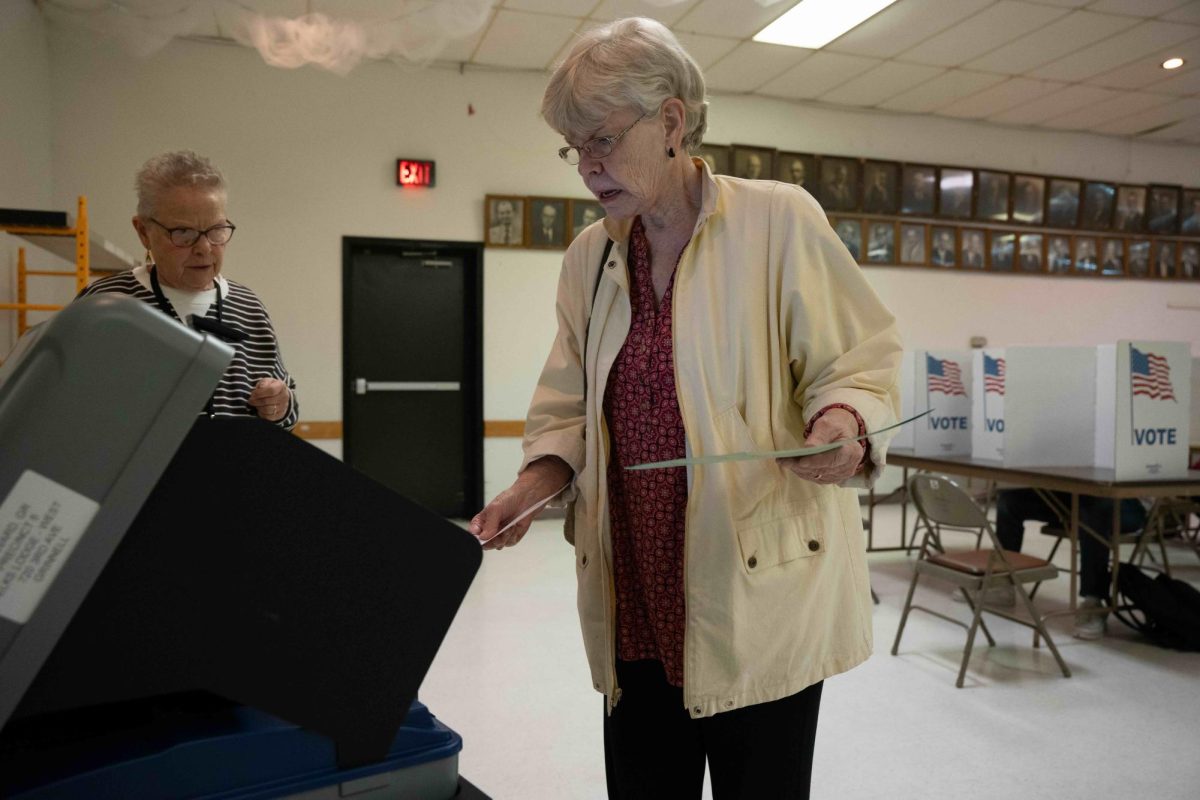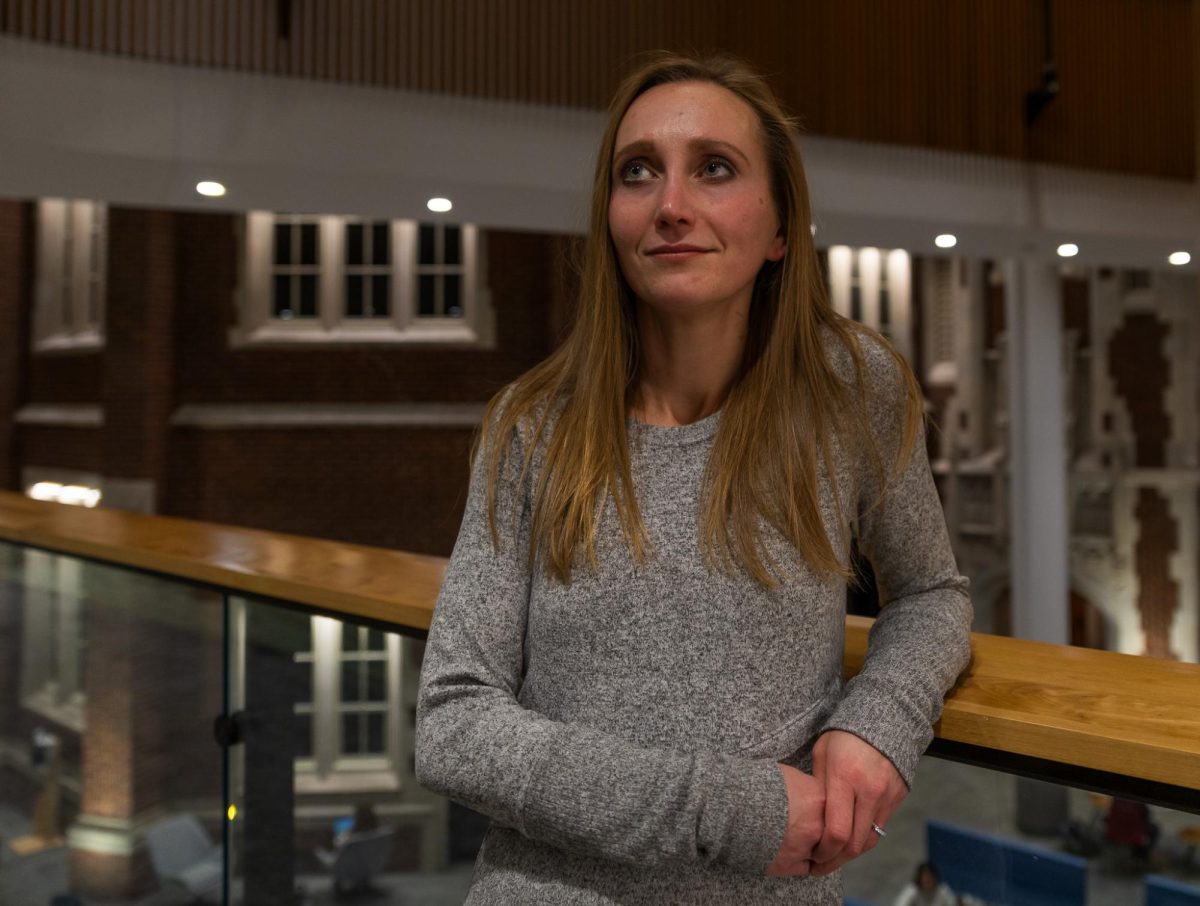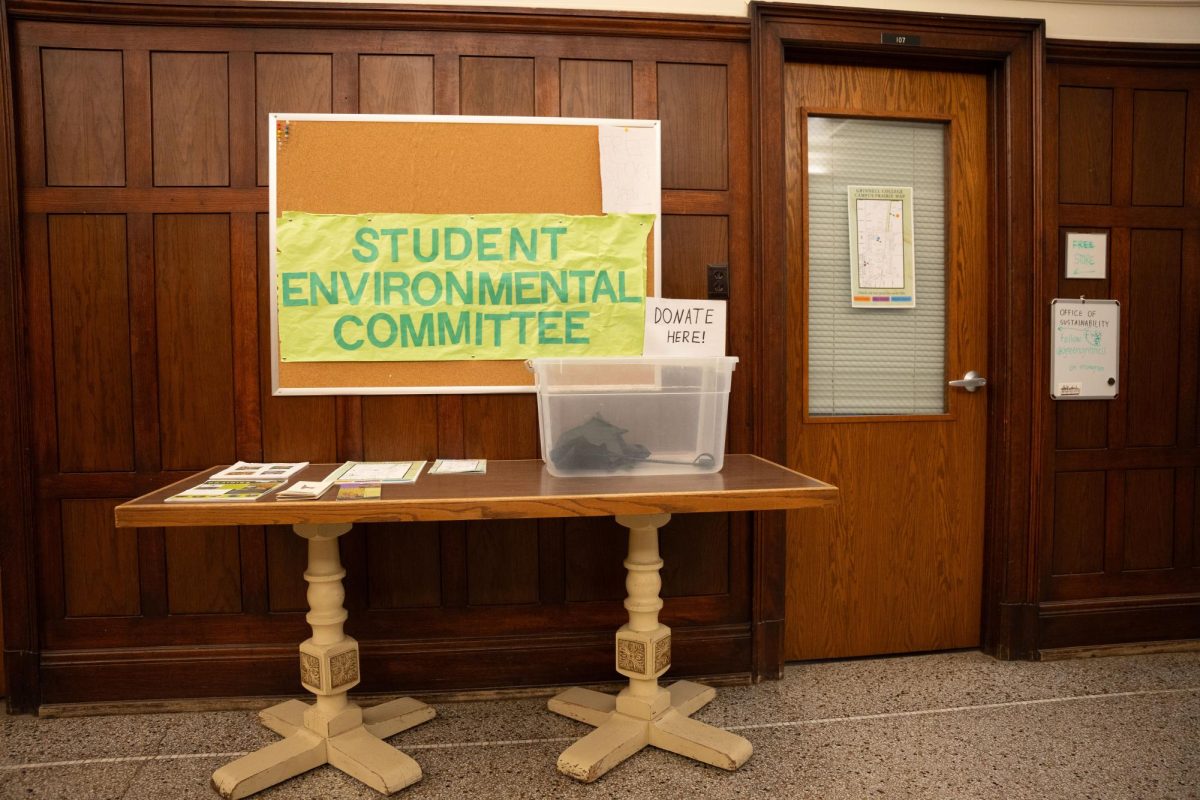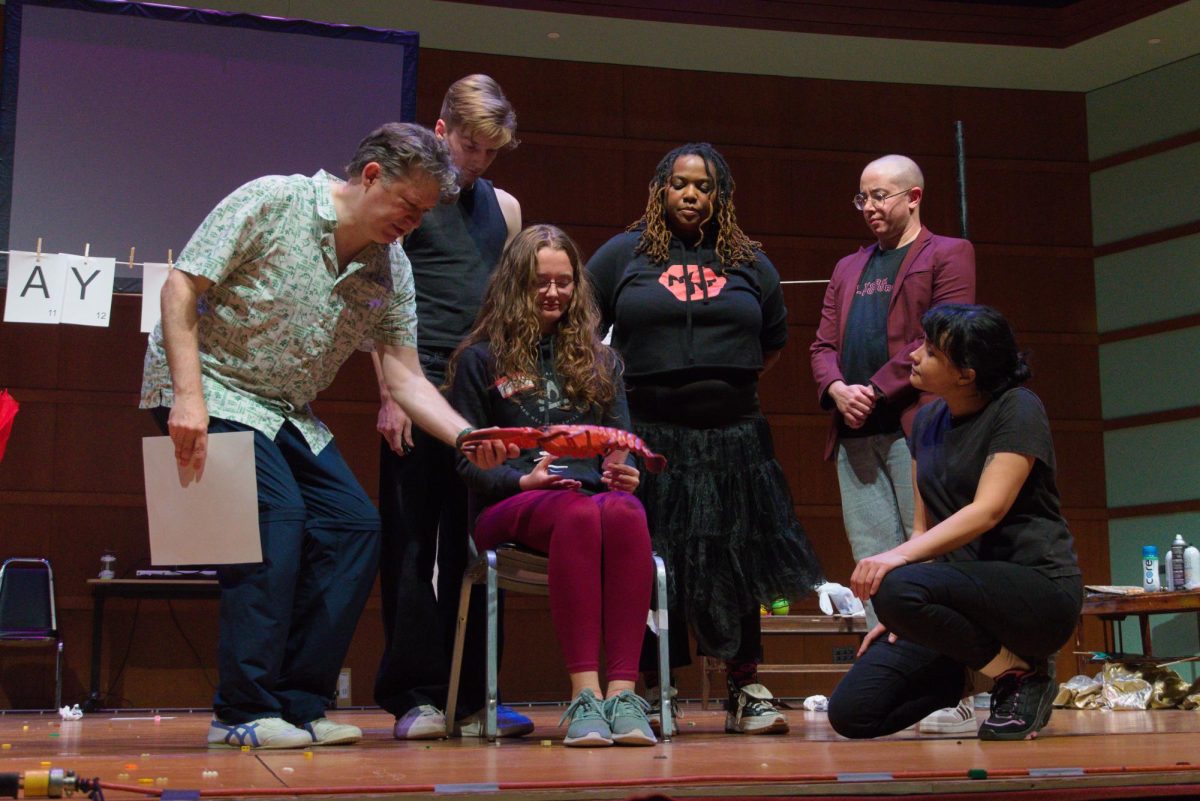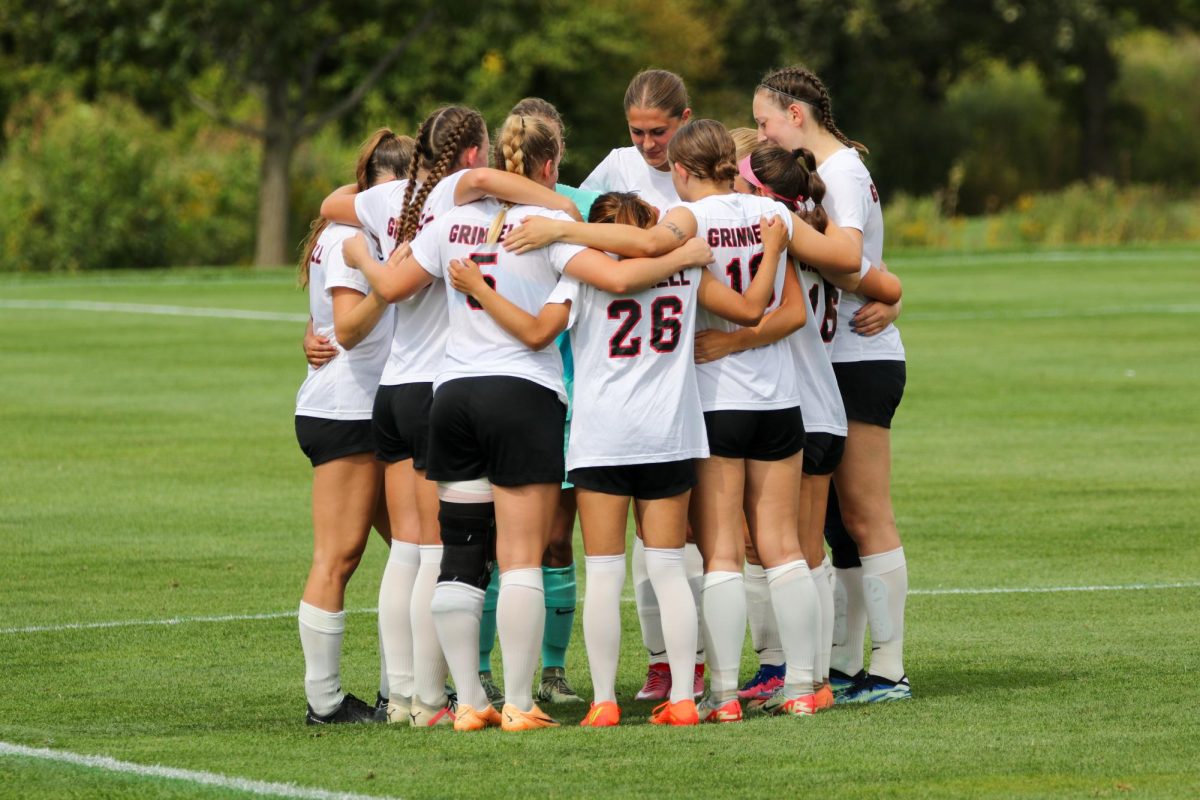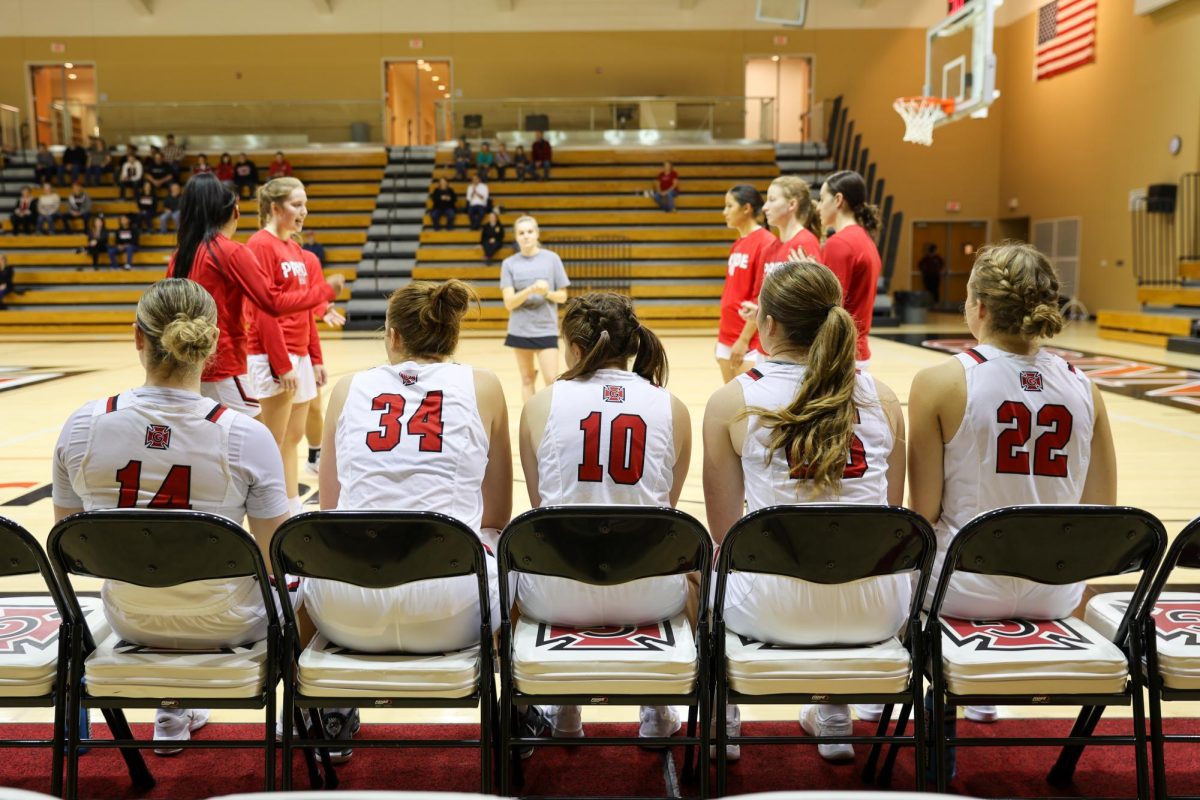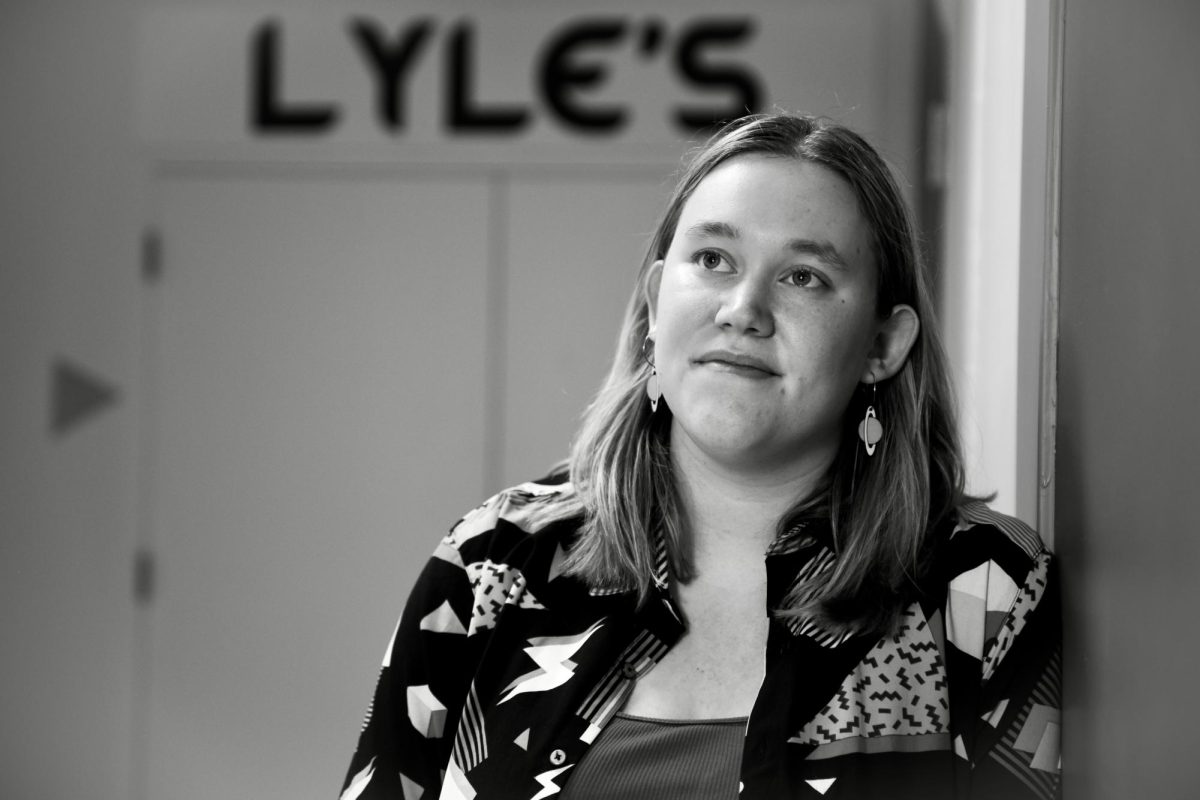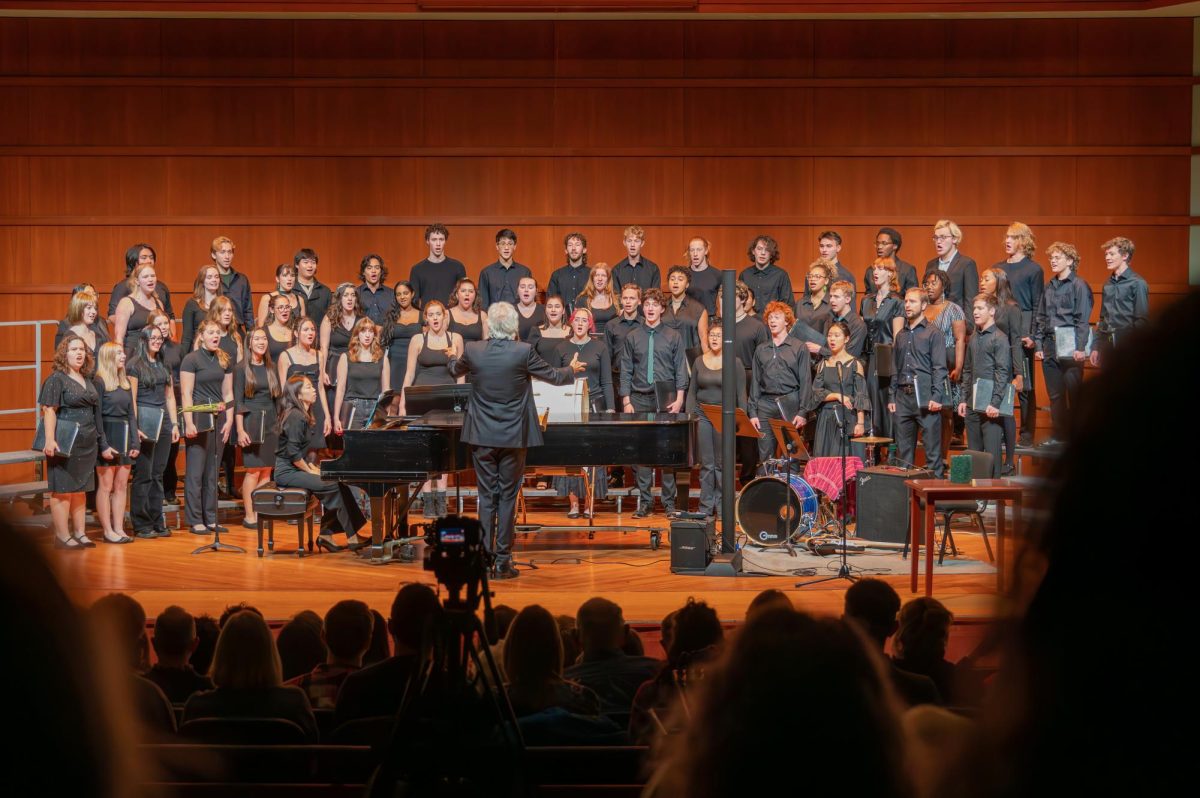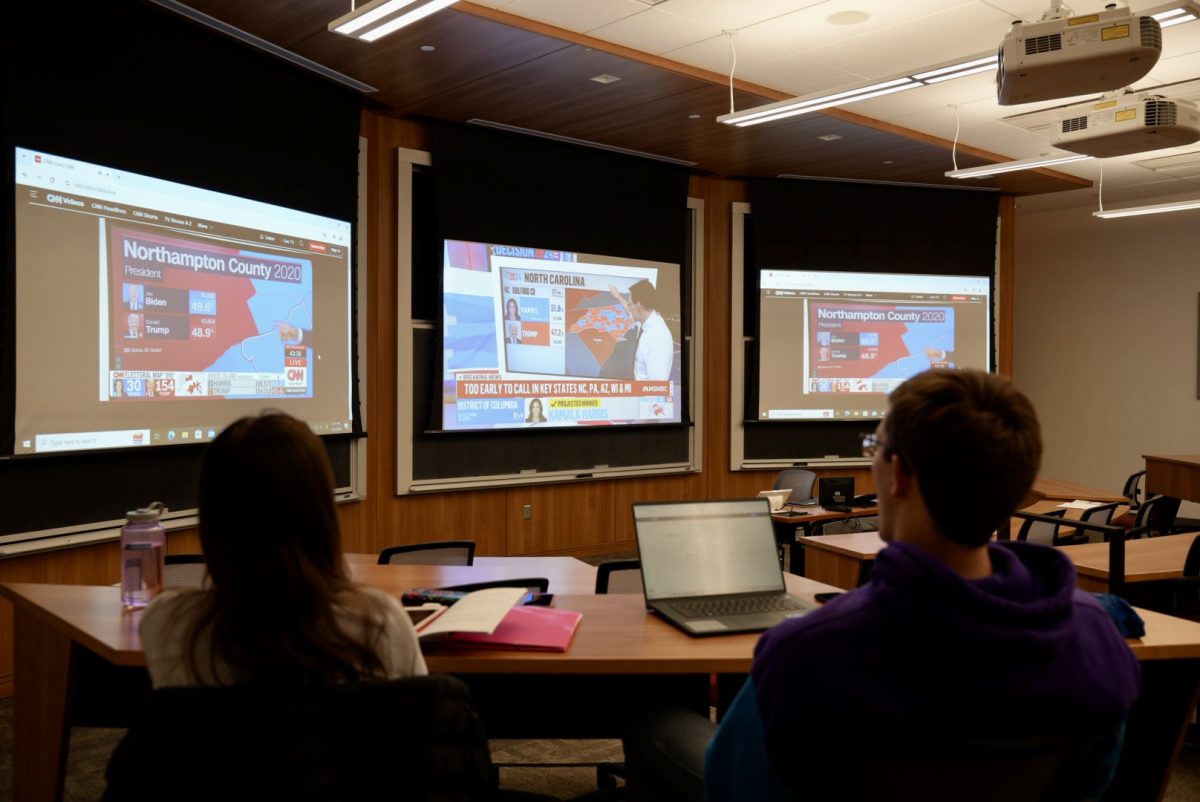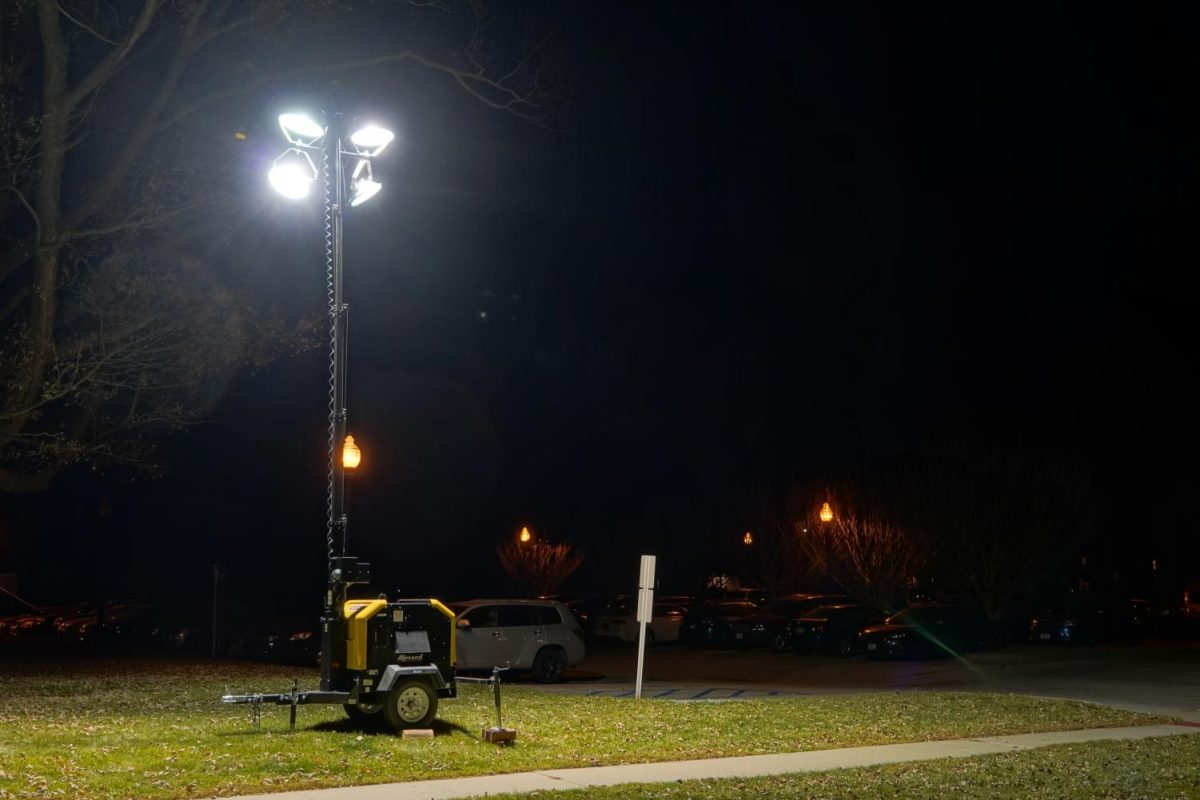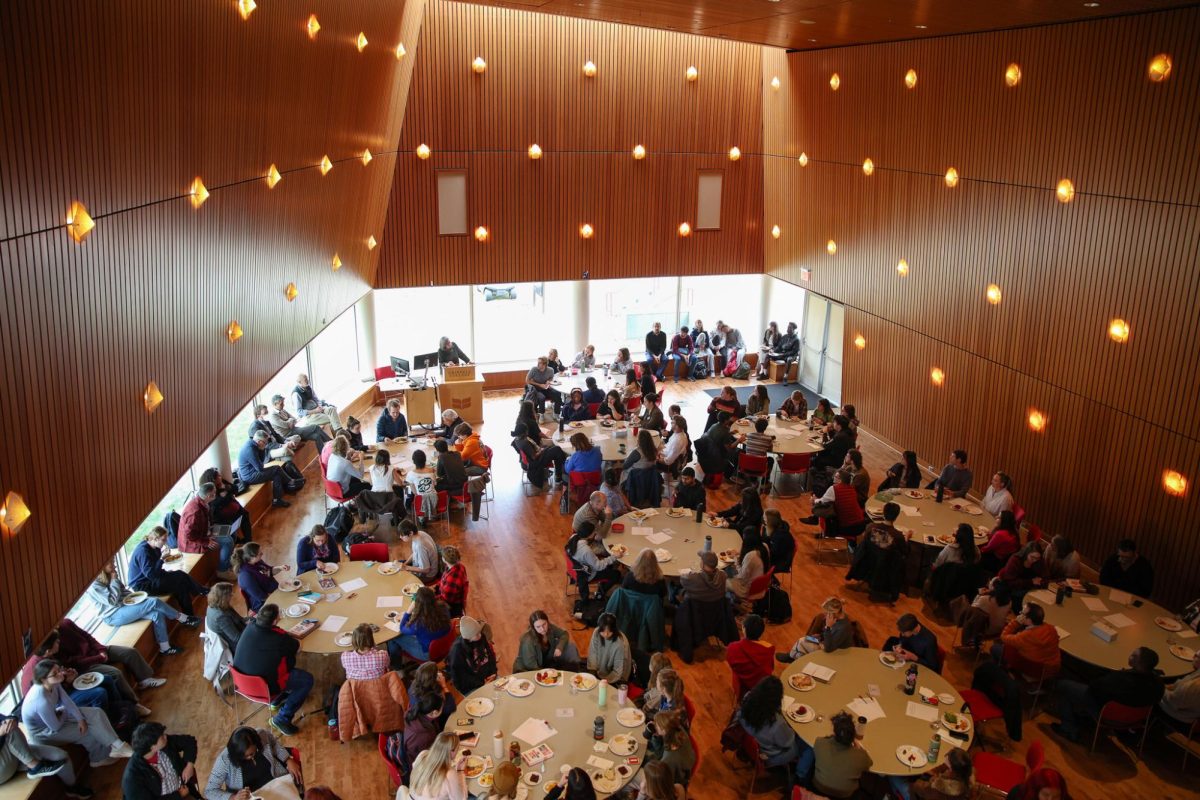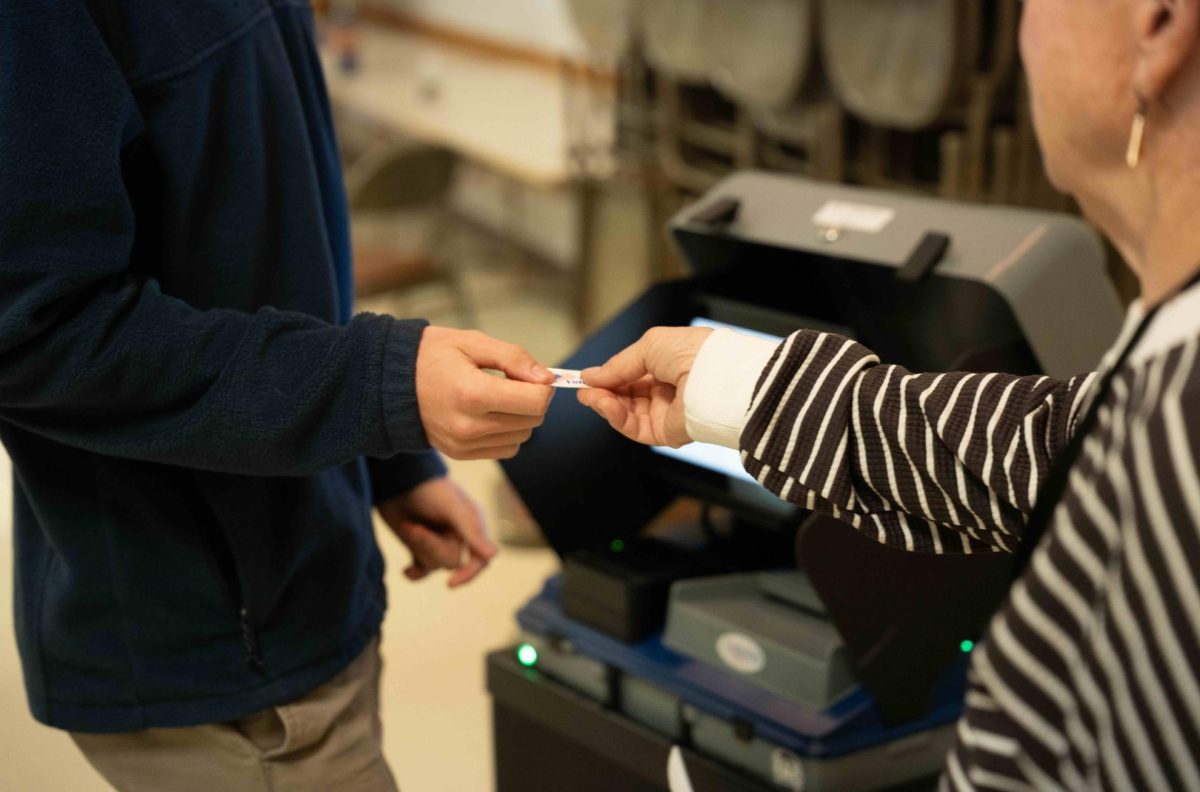Last semester, 785 Grinnell College students swiped their P-Cards at scanners placed outside of the Dining Hall in support of Fogfast, an annual Student Government Association (SGA) fundraiser run in collaboration with Grinnell Dining Services.
Fogfast was advertised to students as a way for them to donate “the value” of a meal to Local Foods Connection (LFC). For each of the 785 meals donated, the College donated $3.61 to LFC for a net donation of $2,833.85 — but prices charged to students for meal plans range from $9 for continental breakfast to $18 for dinner.
In early November 2021, students nominated recipient organizations to receive the donation. A later email sent to all students on Nov. 19 from Sarah Beisner `22, SGA resources and service coordinator, announced LFC had been chosen to receive the donation. According to its website, LFC provides “fresh environmentally sustainable food and nutrition education to Grinnell residents in need.”
Students were informed via email that they could donate one meal, and that in return, “Dining Services will remove one meal off your meal plan for the week and donate the value of that meal to Local Foods Connection.”
When asked how the figure of $3.61 was determined, Director of Dining Services Jeanette Moser wrote in an email to the S&B, “The amount that Dining promised to donate was (and always has been) the food cost (cost of food per person). Food is the only cost that goes down for the donated meals; Dining/the College must still pay wages and overhead; wages and overhead do not decrease for that meal.”
Moser said that $3.61 is the average food cost per meal at the College. When asked whether the College had considered donating the price that students are charged for meal plans, Moser wrote, “Not to my knowledge.” Moser declined multiple requests for interview.
In October 2021, Beisner met with Moser and Kylee Funk, food service systems administrator, to organize Fogfast for the Fall 2021 semester.
In this meeting, Beisner said that Moser phrased the donation amount as “the cost of a meal.” Beisner said she used the same language when informing students about the fundraiser.
Beisner said she did not directly ask Moser prior to Fogfast specifically how much each donated meal would equate to.
“I had some sense that in the past it hadn’t been the full cost of the meal and there had been some conflict over that. But I did expect it to be higher. I expected it to be closer to the $12 that breakfast costs, instead of all the way down at $3.61. I was expecting $7, or $8 or $9 per meal,” said Beisner.
The S&B reached out to Eric Kasprzyk `20, who was the SGA Service Coordinator when Fogfast last occurred in fall 2019. In an email response, Kasprzyk wrote:
“When I was planning Fogfast in Fall 2019, concerns were raised by other members of SGA regarding the actual amount donated. Students had in the past questioned why the Dining Hall was donating a fraction of the actual meal cost.”
“There were a few conversations within the Dining Committee, and I had a personal discussion with the head of Dining over the discrepancy. I reported back on their rationale to the SGA cabinet, and we collectively agreed to table Fogfast for that year while we searched for a better solution with Dining to re-launch Fogfast the following semester. Because the pandemic shut campus down, we were not able to complete that work.”
On Friday, Feb. 11, Beisner met with Moser to discuss increasing the donation for Fogfast, which is scheduled to occur again during the Spring 2022 semester.
“I was going to meet with Jeanette [Moser] again and talk to her about getting a higher amount [donation] just because I want students to feel like their donation is making a difference. The more money the donation actually amounts to, the more I think students will be inclined to donate. Plus, it’s always nice for the community partner to get more money.”
Following the Feb. 11 meeting, Beisner told the S&B that Moser was not receptive to raising the donation amount for Fogfast going forward.


